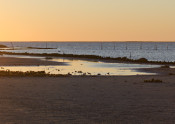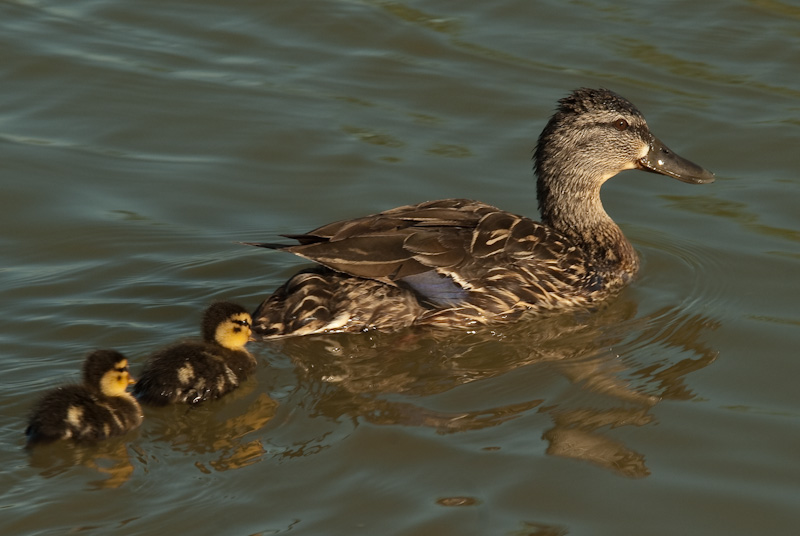Federal and State conservation programs are constantly subject to funding changes. At times, programs are reworked and merged, other times, brand new programs emerge.
New public sector environmental regulations and private sector interests are fueling the emergence of markets for ecological services. While wetland mitigation banking has been around for decades, carbon sequestration markets are new, and regulation and science in these markets is developing. As of 2015, conservation banking is not yet in our geographic area, but could be developed anywhere there is demand and where there is need for endangered species habitat.
Laws involving climate change and redefining what is and is not jurisdictional “waters of the U.S.” are likely to lead to new program rules and initiatives.
Here are a few programs that are already developing and may have economic incentives for wetland conservation. Landowners should watch for even more programs to emerge in the future.
Emerging Programs and Tools
Click on a program below to learn more
 Regional Conservation Partnership Program (RCPP) - Natural Resource Conservation Service (NRCS) and RCPP Collaborative Partners About the RCPP Program The RCPP program was created in the 2014 Farm Bill. It gives landowners incentive to enroll agricultural land and non-industrial private forestland in conservation easements and conservation contracts through partnership between the Natural Resources Conservation Service (NRCS) and local entities which create projects for private landowner conservation. Those entities may be agricultural or silvicultural associations, farmer cooperatives, state and local government, water districts, conservation driven organizations, and educational institutions. Landowners must work with a local... Read More →
Regional Conservation Partnership Program (RCPP) - Natural Resource Conservation Service (NRCS) and RCPP Collaborative Partners About the RCPP Program The RCPP program was created in the 2014 Farm Bill. It gives landowners incentive to enroll agricultural land and non-industrial private forestland in conservation easements and conservation contracts through partnership between the Natural Resources Conservation Service (NRCS) and local entities which create projects for private landowner conservation. Those entities may be agricultural or silvicultural associations, farmer cooperatives, state and local government, water districts, conservation driven organizations, and educational institutions. Landowners must work with a local... Read More → RESTORE the Texas Coast and the Deepwater Horizon Oil Spill - National Fish and Wildlife Foundation (NFWF), Natural Resource Damage Assessment Trustees (NRDA), RESTORE Act Trustees, and National Oceanic and Atmospheric Administration (NOAA) The Deepwater Horizon Accident, which occurred April 20, 2010, spilled millions of barrels of oil into the Gulf of Mexico over a 3 month period. The responsible parties for the spill are required to restore natural resources lost or damaged by the accident. Civil fines and criminal penalties paid by the responsible parties are being used by the Gulf of Mexico states for oil spill cleanup... Read More →
RESTORE the Texas Coast and the Deepwater Horizon Oil Spill - National Fish and Wildlife Foundation (NFWF), Natural Resource Damage Assessment Trustees (NRDA), RESTORE Act Trustees, and National Oceanic and Atmospheric Administration (NOAA) The Deepwater Horizon Accident, which occurred April 20, 2010, spilled millions of barrels of oil into the Gulf of Mexico over a 3 month period. The responsible parties for the spill are required to restore natural resources lost or damaged by the accident. Civil fines and criminal penalties paid by the responsible parties are being used by the Gulf of Mexico states for oil spill cleanup... Read More → Texas Coastal Exchange - SSPEED Center and Rice University About the Proposed Lone Star Coastal National Recreation Area In 2008, Hurricane Ike demonstrated how valuable undeveloped coastal land is for mitigating storm surge damage. Conservation of these open lands is one strategy to mitigation for future storm damage along the upper Texas coast. The Storm Prediction, Education, and Evacuation from Disasters (SSPEED) Center at Rice University, with funding from the Houston Endowment, has proposed a means to ensure this conservation in the form or the Lone Star Coastal National Recreation Area (LSCNRA).... Read More →
Texas Coastal Exchange - SSPEED Center and Rice University About the Proposed Lone Star Coastal National Recreation Area In 2008, Hurricane Ike demonstrated how valuable undeveloped coastal land is for mitigating storm surge damage. Conservation of these open lands is one strategy to mitigation for future storm damage along the upper Texas coast. The Storm Prediction, Education, and Evacuation from Disasters (SSPEED) Center at Rice University, with funding from the Houston Endowment, has proposed a means to ensure this conservation in the form or the Lone Star Coastal National Recreation Area (LSCNRA).... Read More →

